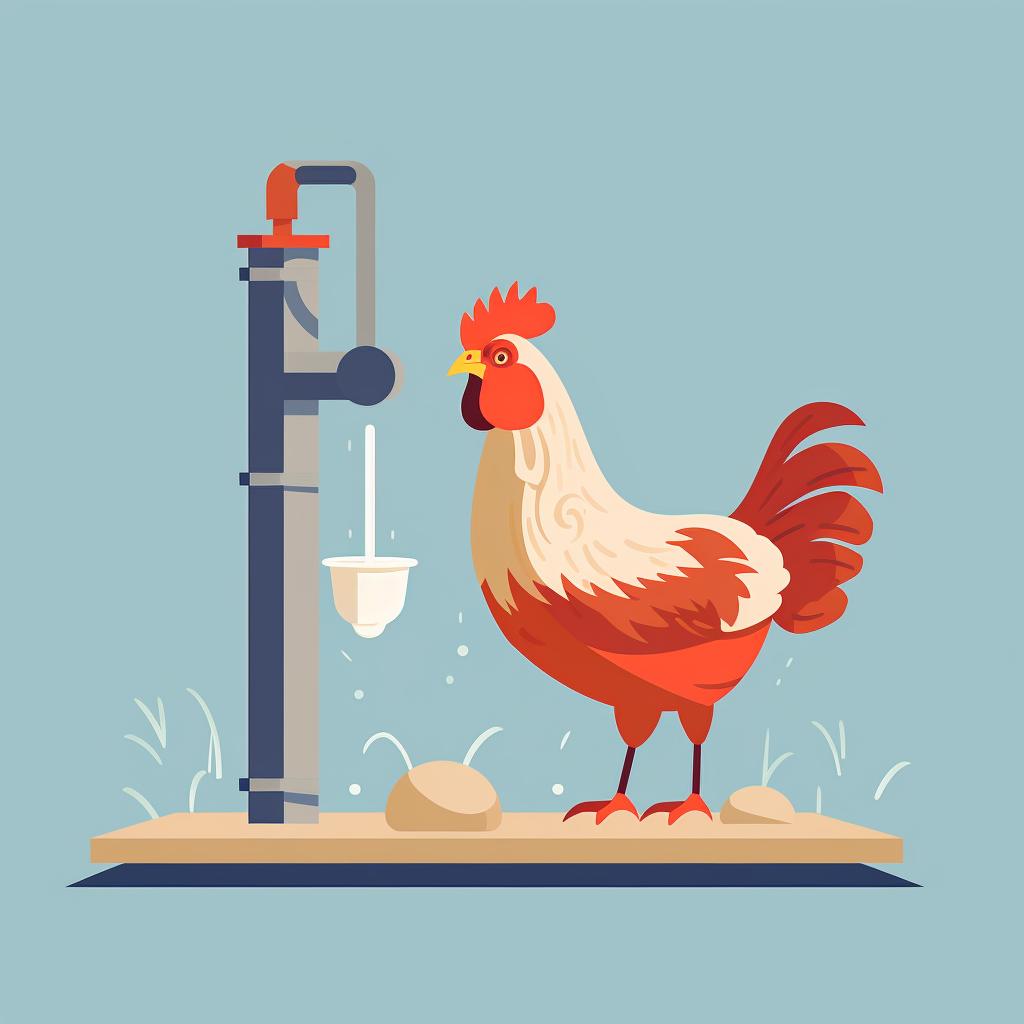Clara Hennington is a seasoned poultry farmer with over 20 years of experience in raising and breeding various types of chickens. She is passionate about sharing her knowledge and experiences with others who are interested in poultry farming. Clara is known for her practical and hands-on approach to chicken care.
Understanding the nutritional needs for raising healthy chickens is crucial for successful poultry farming. This involves knowing the chicken breeds and nutrition, chickens' dietary needs, nutritional requirements for chickens, feeding guide for chickens, chicken diet and egg production, chicken feed nutrition, raising healthy chickens, and nutritional needs for chickens.
🐔 How Different Chicken Breeds Impact Their Nutrition?
Different chicken breeds have varying dietary needs. For instance, meat birds like the Cornish Cross require higher protein levels in their diet compared to layers like the Rhode Island Red. It's important to tailor your feeding regimen to your specific breed's nutritional requirements for optimal health and productivity.
What's on the Menu? Understanding Your Chickens' Dietary Needs 🥦🌽
Chickens' dietary needs evolve as they grow. Chicks need starter feed rich in protein (about 20-24%) for the first 6 weeks. From 6 weeks to laying age, they need grower feed with 14-16% protein. Laying hens require layer feed with 16-18% protein and added calcium for eggshell production.
Nutritional Composition of a Balanced Chicken Diet
The Perfect Plate: Balancing Your Chickens' Nutritional Needs 🍽️
Chickens need a balanced diet comprising proteins, carbohydrates, fats, vitamins, and minerals. Protein aids in growth and egg production, carbohydrates provide energy, fats enhance energy supply, vitamins are necessary for body functions, and minerals are essential for bone development and eggshell formation. Also, chickens need constant access to clean, fresh water.
Your Chickens' Meal Plan: A Practical Feeding Guide 📝
Here's a basic feeding guide for chickens:
Nutritional Needs for Chicks (0-6 weeks)
- High Protein Starter Feed - Chicks require a diet rich in protein (about 20-24%) to aid in growth and feather development.

- Water - Clean, fresh water should be available at all times. Chicks can dehydrate quickly, so it's crucial to monitor their water supply.

- Grit - If chicks are fed anything other than commercial feed, they will require grit to help them grind down their food.

- Heat - While not a nutritional need, maintaining the right temperature is crucial for chicks' survival and growth. They require a heat source until they are fully feathered.

- Safe and Clean Environment - A clean brooder prevents disease spread, and a safe environment protects chicks from predators.

Now that we've covered the basics of what chickens need at different stages of their life, let's dive into a step-by-step guide on how to feed your chickens properly.
Learn more about 🐔 Feeding Your Chickens Right: A Step-by-Step Guide or discover other Expert Chicken guides.
By following these steps, you can ensure your chickens are getting the balanced diet they need. Up next, let's explore how a hen's diet can affect egg production.
From Feed to Eggs: How Diet Affects Your Chickens' Egg Production 🥚
The quality of a hen's diet directly affects egg production. Hens need sufficient protein, calcium, and other nutrients to produce eggs regularly. Lack of these nutrients can lead to decreased egg production and poor egg quality.
Decoding Chicken Feed: What's Really in Your Chickens' Nutrition Bag? 🧐
Commercial chicken feed is formulated to meet chickens' nutritional needs. It's available in different types (starter, grower, layer) to cater to different life stages. In addition to commercial feed, chickens can benefit from kitchen scraps, garden waste, and free-ranging for bugs and greens.
Commercial chicken feed is formulated to meet chickens' nutritional needs. It's available in different types (starter, grower, layer) to cater to different life stages. In addition to commercial feed, chickens can benefit from kitchen scraps, garden waste, and free-ranging for bugs and greens.
Happy Hens: Secrets to Raising Healthy Chickens 🐥
To raise healthy chickens, provide a balanced diet, fresh water, a clean and safe living environment, and regular health checks. Observing your chickens regularly can help you notice any changes in their behavior or appearance that might indicate health issues.
The Final Cluck: Mastering Your Chickens' Nutritional Needs 🎓
In conclusion, chickens' nutritional needs are diverse and change with their life stage. They require a balanced diet that provides all the necessary nutrients for growth, health, and productivity. By understanding and meeting these needs, you can raise healthy, happy chickens.
Nutritional Needs of Chickens Quiz
Test your knowledge on the nutritional needs of chickens with this interactive quiz.
Learn more about 🐔 Nutritional Needs of Chickens Quiz 🥚 or discover other Expert Chicken quizzes.















































